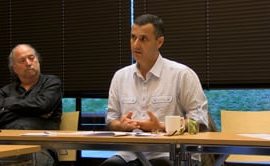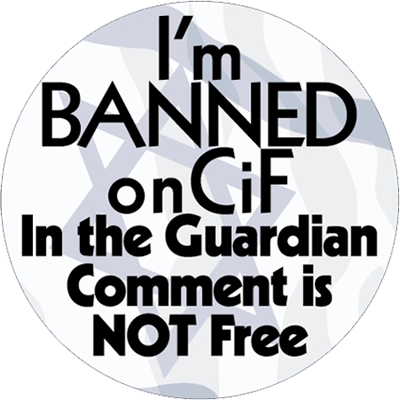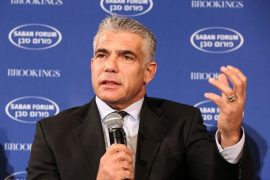“[Ken Livingstone is] the man who hugged [leading ideologue of Islamist terror and an avowed anti-Semite] Sheikh Yusuf al-Qaradawi, the Muslim cleric who justifies attacks on Israeli civilians; who told the [Jewish] Reuben brothers to go back where they came from; who heard a Jewish reporter say he was offended to be compared to a concentration camp guard and didnt care; and who, most recently, wrongly claimed that former Chief Rabbi Immanuel Jakobovits had declared the creation of the state of Israel a mistake.”
Thus begins Jonathan Freedland’s rejection ENDORSEMENT of Ken Livingstone for Mayor in 2008.
The rest of Freedland’s endorsement should be read to get a fuller sense of the stunning rhetorical contortions necessary to make such a radical pivot, and to provide some context for his recent PaliLeaks defense published in the Guardian.
Freedland responds to criticism of his paper’s decision to publish the “Palestine Papers” by reducing the Guardian’s decision down to this:
“It is that once an organisation has been handed information like this, it either publishes it or it suppresses it.”
Well, no. Other options include waiting for additional information before publishing the selected documents – including notes from Olmert and his negotiating team, or the additional Palestinian documents that the Guardian didn’t receive, information that could corroborate or contradict the report.
Indeed, Freedland himself acknowledged that the papers are “not exhaustive and may have been leaked selectively; other documents might provide a rather different impression” (while simultaneously concluding that the papers proved that Israel had a partner for peace). A contradiction? Well, he’s just a journalist.
Freedland then responds to criticism that the publication may have killed the peace process, or may even incite violence:
“The consequences are for others to manage…journalists shouldn’t be expected to weigh all the possible consequences of publication.”
Yes, he’s just a journalist after all, thus free of the quotidian concerns of us mere citizens.
He then adds:
“Only in the rarest exceptions – where there is a direct risk to a named individual’s life – should journalists withhold such information from their readers or viewers.”
Now this is interesting. He’s willing to acknowledge that journalistic discretion may be used, but only when there was a direct risk to a “named” individual.
Those of us living in the region who may be directly harmed as the result of the the carnage caused by another violent intifada don’t count because we are nameless, detached from his every day life – a mere abstraction in his ideological paradigm.
Now, returning to where we began, Freedland’s 2008 endorsement for mayor rested on arguing that, despite Livingstone’s endorsement of known hate preachers such as al-Qaradawi, Jews, in the end, shouldn’t vote based on such narrow concerns. Of greater concern for Jews, according to Freedland, is that Livingstone, after all, would be a better manager, would make the trains run on time.
Freedland concluded his apologia for Livingstone by attacking his opponent in the race, Boris Johnson, for being backed by the BNP as their second preference. That’s right. Freedland never claimed that Johnson supported the BNP or any other extremist group, merely that the BNP placed Johnson somewhere between their preferred candidate and Livingstone.
The mind spins at the thought that Freedland failed to note the stunning failure of his logic: being critical of Jews who would dare vote out of concern that a candidate for political office is openly anti-Semitic, while urging those same Jews to vote against another candidate merely because he wasn’t completely rejected by a party which engages in anti-Muslim and anti-Semitic bigotry – the former (fear of anti-Semitism) representing antiquated Jewish parochialism, the latter (concern for bigotry against other minorities), of course, enlightened Jewish progressivism.
But, maybe I’m being too hard on Freedland. He is, after all, just a journalist.




